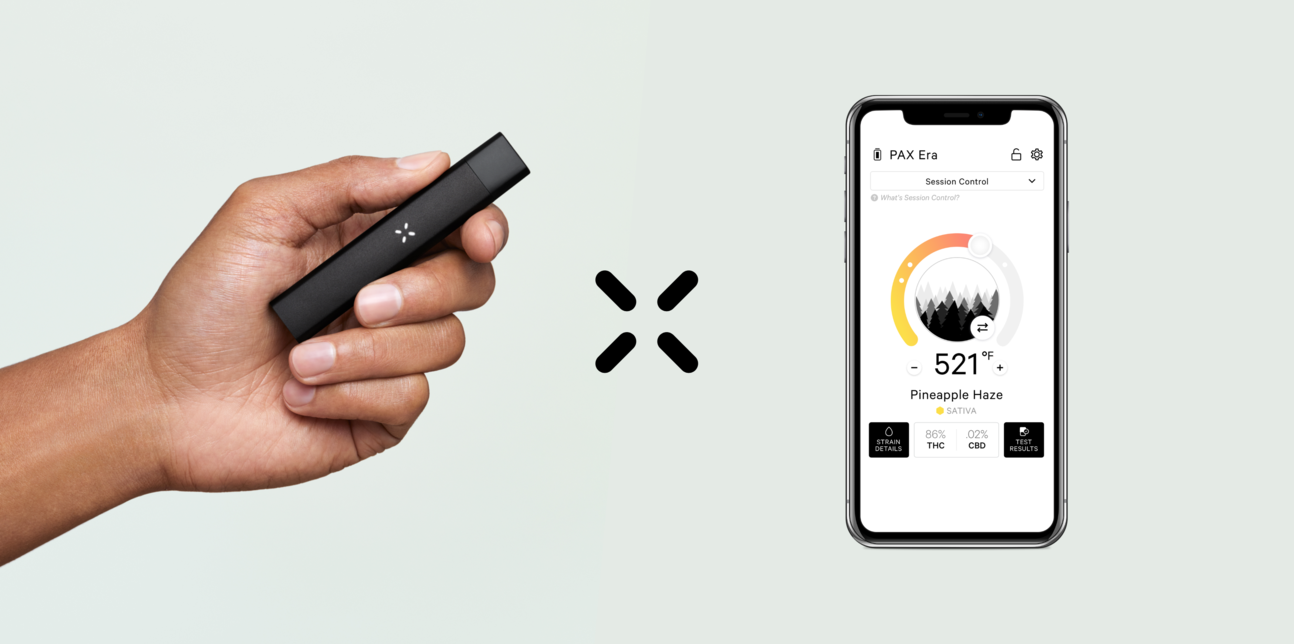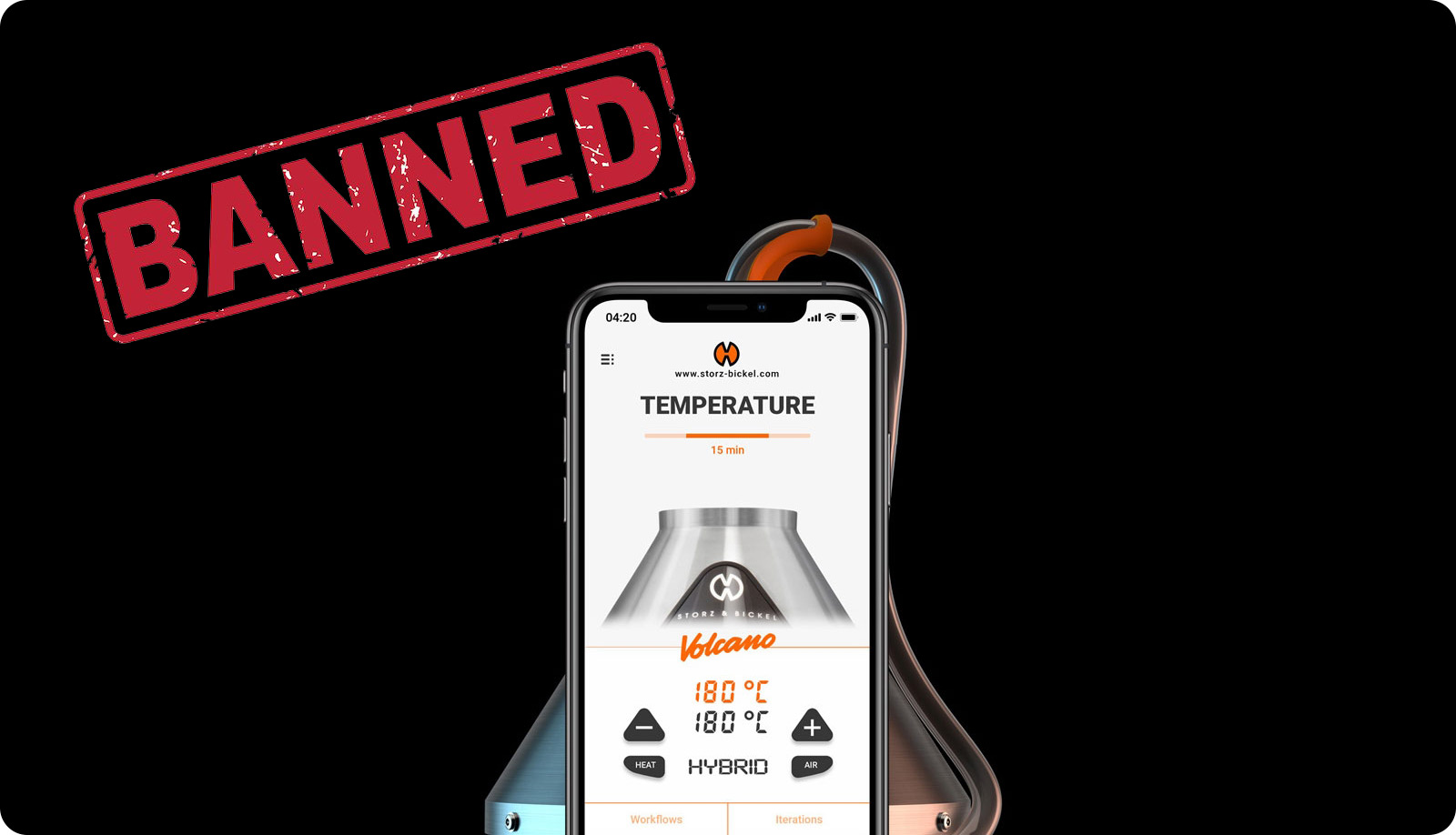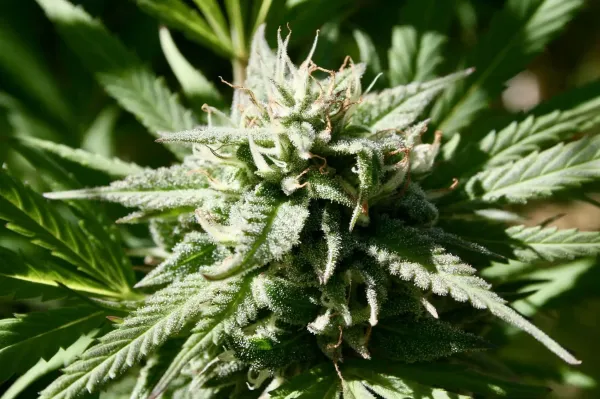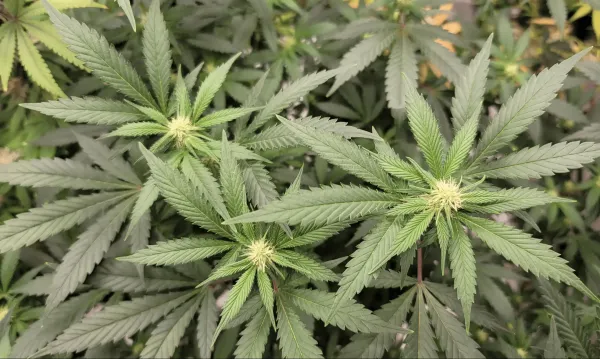Apple has recently moved to broadly ban hundreds of vaping related apps from its AppStore catalog. The move comes after the recent vaping health scare campaign. Apps used by many legal cannabis consumers have also been swept up in this broad ban on vapor related applications including some of the biggest names in the cannabis industry.
Pax Labs
Pax Labs Inc. is the maker of the popular Pax and Pax Era cannabis devices. Pax saw its app removed by Apple early this week. The company had two apps removed. Both apps use bluetooth to display and control temperature and other settings on its Cannabis vaporizer products. The apps themselves did not sell vaping products or post vaping information.

Pax Labs also saw thier app for the Pax Era cannabis oil concentrate pen removed. This app was the sole method to managing the devices. This deals a particularly harsh blow to users as the app was the only means to change device settings including temperature regulation and color features.
Pax Labs said in a statement that they "are concerned by this decision which, in the middle of a public health crisis tied to the illicit cannabis market, will prevent consumers in legal states from having access to important information and the ability to better control their cannabis experience."
The company posted a missive on its blog and says they are working with Apple on a path forward.

Storz and Bickel
Germany's largest medical cannabis company also saw its iOS apps removed from Apple's store. Storz & Bickel are the producers of one of the leading and most expensive medical cannabis vaporization devices on the market, the Volcano. This summer the company released a new version called the Volcano Hybrid that debuts at $699 USD. One of the top new features in the new unit is the ability to control the Volcano and display its temperature and settings on your iPhone via a free app.
Thanks to Apple's ban, customers who didn't already have app will now never be able to use that feature and existing users who change devices may loose it as well. S&B has also has a line of portable flower vaporizers called the Crafty and Mighty which also have companion iOS and Android apps. These devices and apps have been on the market for over four years and now users are left without a core component of the package.
Another result of the apps being removed is that all of the above devices also offered firmware updates to the devices on a routine basis. That ability also is now compromised as a result of Apple's actions.
The Ban Hammer Has Spoken
In total Apple removed over 180 vaping related apps. Many focused on nicotine and e-cig style products but the ban clearly also swept up some of the most popular cannabis apps. The company has even updated its developer guidelines to prohibit apps that facilitate or encourage the use of vape-related devices.
The only public commentary Apple has provided on the issue comes from the following statement released to the media:
We take great care to curate the App Store as a trusted place for customers, particularly youth, to download apps. We're constantly evaluating apps, and consulting the latest evidence, to determine risks to users' health and well-being.
Recently, experts ranging from the CDC to the American Heart Association have attributed a variety of lung injuries and fatalities to e-cigarette and vaping products, going so far as to call the spread of these devices a public health crisis and a youth epidemic.
We agree, and we've updated our App Store Review Guidelines to reflect that apps encouraging or facilitating the use of these products are not permitted. As of today, these apps are no longer available to download.
The policy is likely to harm medical marijuana patients and legal consumers. Medical Cannabis is now legal in over 33 states and US territories. Medical cannabis laws have been in place in California since 1996 and recreational use of cannabis has been available since 2018. Despite these circumstances, in 2019 cannabis in any form is still illegal under Federal statutes.
Patients and consumers will be inconvenienced by the sudden lack of ability to control medical devices that deliver medicine. Innovation and consumer safety is also stifled as new and existing devices may be hamstrung without the ability to connect to the latest smartphones and devices. Hopefully Apple will take a closer look at this issue and use a more common sense approach rather than blanket app prohibition.











